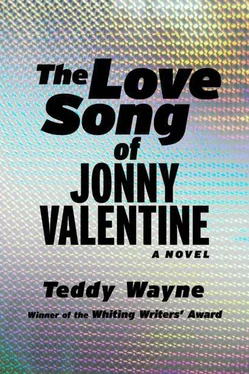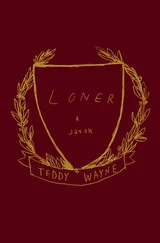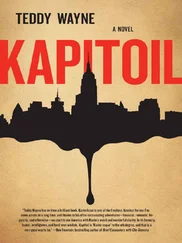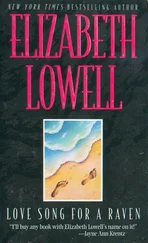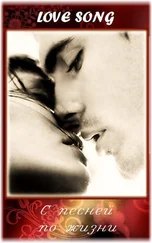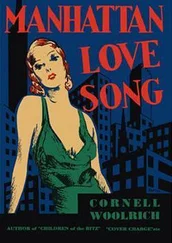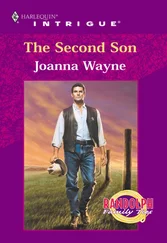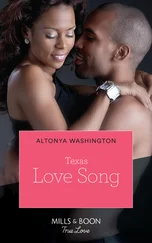Walter sat with his eyes closed and was quieter than usual on the drive back. I didn’t want to break the silence, but eventually I asked, “How did you and Callie meet?”
“High school,” he said. “I thought she was way out of my league, but I asked her to the senior prom, she said yes, and there you go.”
I was surprised he thought she was out of his league, but I just said, “I guess I’ll never go to the prom. I’ll just sing about it in ‘The Big Dance.’ ” I don’t even sing it much. It’s a crap track from before the label figured out my voice.
“Never know, maybe you will.” I hadn’t told him Jane’s idea about school. I bet she hadn’t, either. Nadine could’ve. I didn’t want to discuss it with him.
He was quiet for another minute. “I fucked that one up, didn’t I?” he said.
“That was a fun night. You didn’t fuck anything up.”
“No, not tonight,” he said, and I understood what he meant.
“Then why’d you leave?” I’d never really asked Walter before about why he left his family. Jane told me not to once when I asked her.
“I didn’t,” he said. “She kicked me out. But I had it coming.”
“Why?”
He did this half-smile/half-frown thing he does sometimes. “We had creative differences.” He added, “Sometimes I forget you’re ten years old,” but instead of reminding him I was almost twelve, I said, “Do you wish you could go back?”
“Nah. I like working for you guys, and getting to hang out with you, and I’ve got my friends in L.A. and everything.”
He didn’t have that many friends in L.A. besides the guys he knew at his gym, though. He mostly hung out in his bungalow when he had time off, and if the label hadn’t recommended him as a bodyguard from a connection he had, he’d be a trainer in some bottom-shelf Hollywood gym.
“I read a fortune cookie just after I moved to L.A.,” he went on. “It said, ‘To live in the future you must break with the past.’ And I know these cookies tell you whatever you want to hear, but still.”
“So that’s why you came to L.A.? To break with the past?”
His eyes were still closed. “Yeah. But it’s more like a break in your head. Like that song of yours, ‘I Loved a Girl’? Where you realize it’s over, so you have to let it go?”
I’d always thought that song, which was actually called “Once Loved a Girl,” was just about an ex-girlfriend who didn’t love you as much in return. The chorus goes, “Once loved a girl, in the past tense, she never committed, stayed on the fence.” Maybe Walter was right.
“I had to keep telling myself, ‘I don’t love Callie anymore,’ ” he said. “Because when you really love someone, it means they can hurt you. I even had this picture of us kissing, from a photo booth, and I tore it apart in the middle. Like that other song of yours.”
He meant the chorus from “Heart Torn Apart”: “Before I felt whole, now there’s a hole in the part, where my heart used to be, ’cause you’ve torn it apart.” It’s not a hack rhyme because it’s the part and apart .
“So you did it enough that you really don’t love her anymore?” I asked.
He opened his eyes for the first time. “I’m tired, brother.”
He closed them again, and I left him alone and listened to MJ on my iPod until we got home. Walter told himself Callie couldn’t hurt him anymore, but anyone could see she was still his Major Vulnerability, right in front of him, even if she was halfway across the country most of the time. Maybe that’s what it was with most people, the person closest to them. I always figured Jane and my father both wanted to end things because of creative differences, but maybe he had it coming, too, and they were each other’s Major Vulnerability, and so she kicked him out. My songs are always about a girl dumping me and I still love her and want her back, but dating is different from people who have a kid. Except it could be that he wants to come back now, like Walter does, even if he won’t admit it.
CHAPTER 14. Nashville (Second Day)
When the wake-up call rang at seven in the morning and I said, “Thank you,” it felt like forks scratching away at the bottom of my throat. I hoped the coffee might soothe it, but it made it worse. I couldn’t find any Throat Coat in my suitcases, so I knocked on Jane’s door. She opened it in her towel.
“Jane,” I croaked, and she gave me a look like, What the hell is wrong with you? “My throat is really sore.”
“Do you feel sick?”
“No, only my throat.”
She ordered up a pot of hot water and some honey and steeped Throat Coat in a mug for me, but I still sounded like junk. “I bet it was that stupid impression,” she said. I’d shown it to her when I got in last night and she told me it was bad for my voice and to knock it off. “How long did you do it for?”
“Maybe two hours.”
“For Christ’s sake,” she said. “I can’t believe he let you do it for that long.”
“Who?”
“Walter. He knows you’re not supposed to strain your voice.”
“He didn’t know it hurt my throat.”
“It hurt, and you still did it?”
“A little. I didn’t think it would do this.”
“Jesus, how old are you? Okay, stop talking, just stop,” she said. “Don’t talk again, and keep drinking the tea. Can you sing tonight?”
I didn’t know if I was allowed to talk, so I shrugged. I could tell from a few minutes of this that it would be a pretty frustrating life if you were totally mute. I wasn’t sure what would be worse, being mute or deaf. For one, you couldn’t sing music, and for the other, you couldn’t hear it.
“Let me figure this out. In the meantime, get ready for your session with Nadine, and I’ll tell her you’re not supposed to talk.”
I just did writing and math exercises and a new vocab test with Nadine, but my performance was subpar, which means the opposite of superb . I wondered if that was like the word Zack used when it sounds the same but means the opposite. I broke the rule of not talking by asking Nadine if there was a name for words that sound like they’re mixed up and also mean the opposite, but she said she didn’t think so. It’s like those guys who can sing two different tones at once with their throats. I’ve tried a million times and can’t do it. The only way is like we did on an alternate take of “Breathtaking,” when they overlaid me singing the chorus in a lower octave, but my producer didn’t like it. You have to keep the emotional message in pop songs pure, or you confuse the audience.
When Jane picked me up in a few hours for sound check with a thermos of Throat Coat and honey, she asked me to speak, and I still sounded like a frog. “If you can’t sing by tonight, we’ll lip-synch it,” she said. “I had to fight tooth and nail with the venue to let us do it. They wanted to back out of various clauses in the contract.”
I suck at lip-synching. It always looks fake. I’ve never had to do it for a full concert before. “Where’s Walter?” I whispered as we got in the elevator.
“He’s got some appointments in town this afternoon. Stop talking and keep drinking.”
My voice was softening and I knew I could handle the banter interludes, but at the start of sound check, when I tested out the lines “Please don’t send a text, please don’t you depart, please send an RSVP to my heart,” it sounded terrible and made my throat worse, and Rog told me not to sing anymore. I had to stand there like a numbskull and pretend to sing while they piped in my vocal tracks and I got worried that everyone would catch me faking it later. People get more upset over someone pretending to be good and lying to them than someone who’s horrible but open about it. Jane told me they wouldn’t, that concertgoers don’t hardly even listen to the singers, they only want to see you and feel like they’re connecting with the star by singing along, and I would’ve asked how they could connect with me if they’re not even listening to me, but I didn’t want to strain my voice.
Читать дальше
